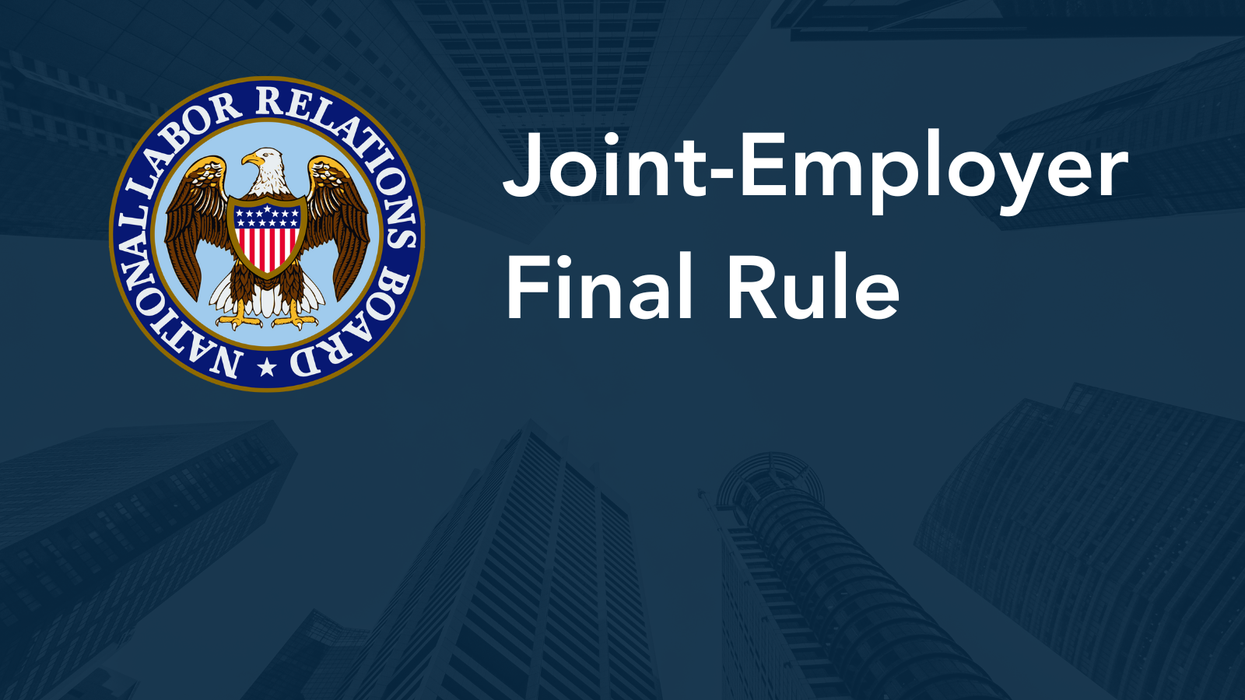THE U.S. SENATE voted to block the National Labor Relations Board’s final definition of joint-employer status, following up on a similar bill passed by the House. President Biden is expected to veto the bill, but opponents of the NLRB joint employer rule, such as the American Hotel & Lodging Association, claim the Senate’s resolution was a “win for hoteliers.”
After the House passed its Congressional Review Act against the NLRB rule in January, the U.S. District Court for the Eastern District of Texas also issued an order blocking the NLRB rule. AHLA supported both efforts to block the NLRB rule, calling the current joint employer definition a threat to the hotel franchise model.
“Today’s bipartisan Senate vote is a win for hoteliers and small business owners everywhere, and shows the rule is out of step with Congress, the courts, and America’s job creators. Lawmakers from both parties in the House and Senate realize the administration’s joint-employer rule would acutely suppress job creation for hoteliers and other businesses, and therefore it needs to be abandoned,” said Kevin Carey, AHLA Interim president and CEO.
The NLRB ruling, issued Oct. 26 and due to take effect Feb. 26, defines a joint employer to be any company that shares or codetermines one or more essential terms and conditions of employment. Those include ages, benefits, and other compensation; hours of work and scheduling; the assignment and supervision of duties to be performed; work rules and tenure of employment.
The final rule rescinds the 2020 rule that was promulgated by the prior board and applies the new definition of joint employer to any entity that can control the essential terms of employment whether or not such control is exercised and without regard to whether any such exercise of control is direct or indirect.
Not likely to receive Biden’s signature
The Senate version of the Congressional Review Act was sponsored by Louisiana Republican Sen. Bill Cassidy, West Virginia Democrat Sen. Joe Manchin and Republican Minority Leader Mitch McConnell. Manchin and Cassidy gave similar reasons for supporting the legislation.

“In West Virginia, more than 98 percent of our businesses are small businesses, and they are the heart and soul of our communities,” Manchin said. “The NLRB’s joint employer rule would shut the door for thousands of citizens who want to start a business and fulfill the American Dream when we should be focused on bolstering our economic growth and empowering Main Street America. I’m glad our CRA resolution has now passed both the House and the Senate and I encourage President Biden to accept this bipartisan, bicameral rejection of this confusing and unnecessary rule.”
“Saddling franchisers with liability for thousands of franchise owners that actually operate the day-to-day activities of small business would be a sure way to destroy the system of franchising. This model has empowered those underrepresented in the business community, such as women and people of color, to become successful small business owners and create jobs for others,” said Cassidy. “The Biden administration should support workers and increase economic opportunity, not make it easier to forcibly and coercively unionize workers while undermining the business model of the establishments they work for.”
The White House has not issued a statement on the bill’s passage, but according to Reuters Biden is expected to veto the bill. After the House version passed, the White House Office of Management and Budget told Reuters that it would interfere with workers’ rights to bargain for better working conditions.
“Reversing this rulemaking will prevent workers from exercising their right to bargain for higher wages, better benefits, and safer working conditions,” the OMB said. “Too often, companies deny workers this right by hiding behind subcontractors, staffing agencies, and temporary agencies.”
An NLRB spokesperson did not immediately respond to a request for comment. However, after the Eastern District of Texas court ruled to block the joint employer rule the board released a statement defending its rule.
“The District Court’s decision to vacate the board’s rule is a disappointing setback but is not the last word on our efforts to return our joint-employer standard to the common law principles that have been endorsed by other courts," said NLRB Chairman Lauren McFerran.






